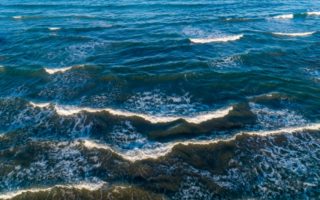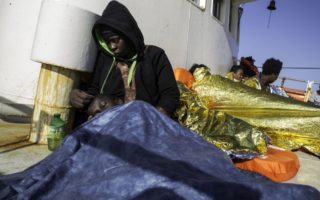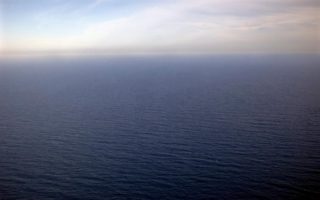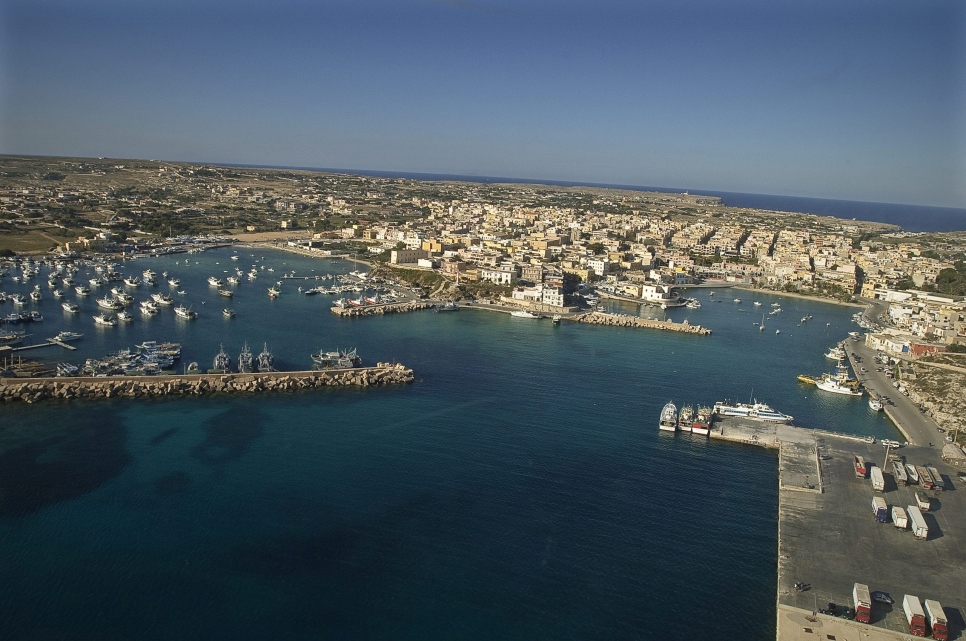
A view of the port of Lampedusa on the Italian island of the same name in the Mediterranean Sea. © Fred Noy
An asylum-seeker allowed to disembark from the Open Arms rescue vessel on the Italian island of Lampedusa recalls the horror of her journey.
By Marco Rotunno
AGRIGENTO, Italy – Feven* kept looking at her feet. The 18-year-old’s voice was a whisper amid dozens of asylum seekers at a reception center on the Italian island of Sicily. Memories of her ordeal are still fresh.
“We were sharing two toilets for 130 people. We were sleeping all together on the boat’s deck: some areas had shade, others not. We had to take turns,” she said.
“We were malnourished, though not from the days on the boat. That was a consequence of the long time we had spent in the traffickers’ hangars in Libya,” she said.
Feven is one of the lucky ones.
She was rescued on 1 August by the Open Arms rescue vessel and evacuated from the ship with 13 others to Lampedusa for medical reasons on 15 August. One hundred others, also rescued from international waters off the coast of Libya, remained on the ship for a further six days.
Her ordeal began in early 2017 when she left Eritrea as a 15-year-old. No family members accompanied her. She declined to talk about her journey to Libya or her experience during the 18 months spent there in a hangar run by traffickers. Many women in the centres have experienced violence, rape and torture for the purpose of extorting money from family members back home. Some have been killed.
“There was water leaking inside the boat.”
Traffickers imprison migrants and asylum seekers in Libya for months before transporting them towards Europe by boat. Feven said the vessel she was on held 52 Africans including 15 women and two children. The journey was a nightmare.
“There was water leaking inside the boat.”
“The wooden boat was stranded at sea off Libya for two days. The engine broke. There was water leaking inside the boat. The waves were so strong. We were terrified but we were coming from hell. We were not afraid to die. Then Open Arms saved us,” she said.
Then a new kind of ordeal began. It was different from staring death in the face on a rickety boat, but no less bewildering. Unable to understand what was going on, she waited as first the hours and then the days dragged by. All the time, her anxiety rose.
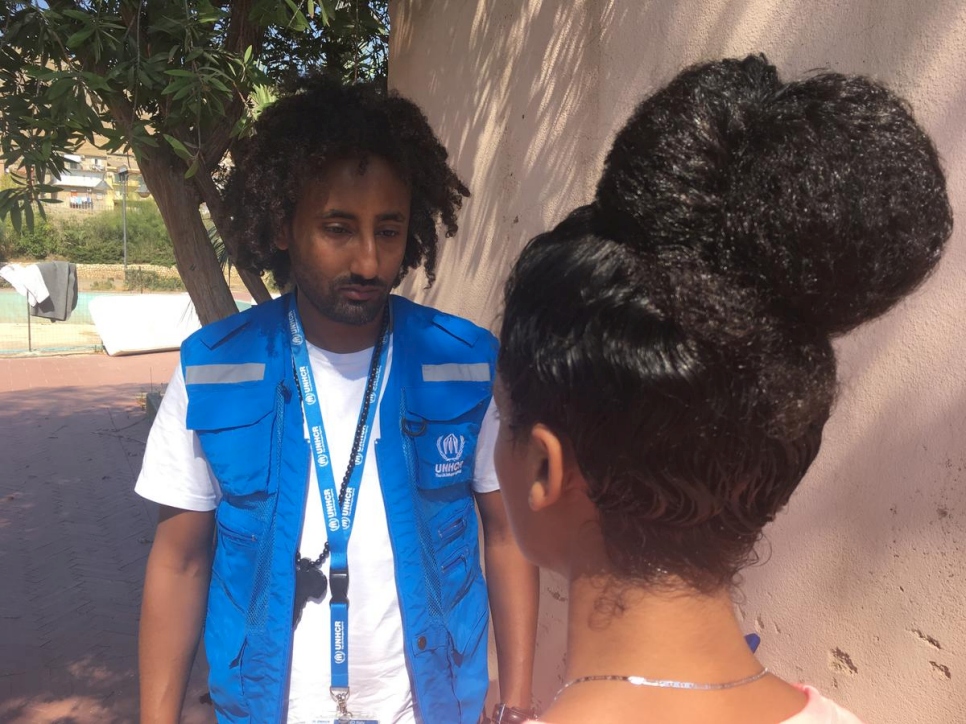
UNHCR staff listens to an asylum seeker’s ordeal in Libya. Her group was rescued by Open Arms vessel on August 1, and was stranded at sea for around 20 days before being allowed to finally disembark. in Lampedusa. © UNHCR/Marco Rotunno
“We got a sense of the problem from the other people’s faces. We were not allowed to leave the ship because Europe didn’t want us. Then we started fearing we could be sent back to hell: Libya.”
UNHCR, the UN Refugee Agency, appealed to European governments to allow the Open Arms to disembark the passengers. Four days after Feven’s group came ashore, the others disembarked finally after an Italian court intervened.
Rescue at sea, a humanitarian imperative and a legal obligation under international law, has been increasingly hampered in the last years. More than 800 people have died or gone missing this year on the Mediterranean, according to UNHCR, the UN Refugee Agency.
UNHCR says increased search and rescue capacity on the Central Mediterranean is needed and NGO boats should be supported as they save lives.
A collaborative approach involving States on both sides of the Mediterranean is required to ensure quick and predictable disembarkation that helps reduce loss of life in the Mediterranean Sea.
Due to the intense fighting as well as widespread reports of human rights violations, including arbitrary detention, Libya cannot be considered a safe port, and no one should be returned there.
More efforts are also needed to move refugees out of harm’s way in Libya. No one should feel they are better off risking their life, and the lives of their families, on these often fatal boat journeys. Faster and increased safe and legal pathways to asylum are needed, including evacuations and resettlement.
* Feven asked that her real name not be used for security reasons.
Originally published by UNHCR on 23 August 2019



